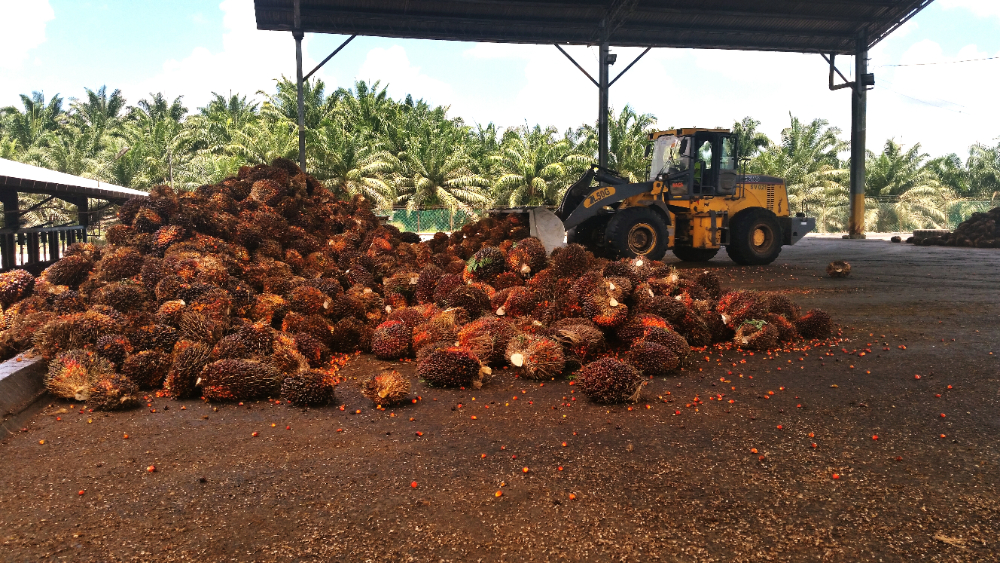
Introduction
The European Union’s Deforestation Regulation (EUDR), effective from June 2023, imposes stringent due diligence requirements on companies exporting key commodities—including palm oil, coffee, cocoa, rubber, soy, wood, and cattle—to the EU market. The regulation mandates that these products must be deforestation-free, legally sourced, and traceable to their origin.
For India’s palm oil industry, which falls under the purview of the Chemicals and Export Promotion Council (Chemexcil), EUDR compliance presents both challenges and opportunities. This article explores the implications of EUDR for Indian palm oil exporters, the role of Chemexcil in facilitating compliance, and how Detroit Consultancy, in collaboration with Dilify, is bridging the gap by delivering global expertise at an affordable and approachable level to help businesses adapt.
Key Aspects of EUDR Relevant to India’s Palm Oil Industry
1. Deforestation-Free Sourcing (Post-Dec 2020 Cutoff)
- Palm oil must not be linked to land deforested after December 31, 2020.
- Indian exporters must provide geo-coordinates of farms to prove sustainable sourcing.
2. Due Diligence & Traceability Requirements
Companies must establish a three-step due diligence process:
- Data Collection: Origin, supplier details, compliance evidence.
- Risk Assessment: Evaluating deforestation risks.
- Mitigation Measures: Addressing non-compliance risks.
3. Penalties for Non-Compliance
- Fines up to 4% of annual EU turnover.
- Possible import bans for repeated violations.
Challenges for Indian Palm Oil Exporters
1. Lack of Farm-Level Traceability
- India imports ~65% of its palm oil from Indonesia & Malaysia, where deforestation risks exist.
- Domestic palm cultivation is fragmented, making traceability difficult.
2. High Compliance Costs
- Small and medium enterprises (SMEs) may struggle with digital mapping, audits, and certification costs.
3. Dependency on Third-Party Suppliers
- Many Indian refiners rely on Indonesian/Malaysian crude palm oil (CPO), requiring stronger supplier verification.
4. Limited Awareness Among SMEs
- Many exporters under Chemexcil lack awareness of EUDR’s technical requirements.
Opportunities for Indian Palm Oil Industry
1. Shift Towards Sustainable Palm Oil (RSPO/ISPO Certification)
- Indian companies can adopt RSPO (Roundtable on Sustainable Palm Oil) or ISPO (Indonesian Sustainable Palm Oil) certifications.
2. Strengthening Domestic Supply Chains
- The National Mission on Edible Oils – Oil Palm (NMEO-OP) promotes domestic palm cultivation with a sustainability focus.
3. Digital Solutions for Compliance
- Blockchain, satellite monitoring, and AI-driven traceability tools can help meet EUDR mandates.
4. Chemexcil’s Role in Facilitating Compliance
- Training & Awareness Programs: Workshops on EUDR requirements.
- Partnerships with Certification Bodies: Collaborating with RSPO, ISPO for easier compliance.
- Government Advocacy: Lobbying for supportive policies and subsidies for SMEs.
Collaboration: Detroit Consultancy & Dilify Bridging the Knowledge Gap
How Detroit Consultancy & Dilify Help Indian Exporters
- Affordable & Localized Expertise: Bringing international best practices to Indian exporters at a cost-effective level.
- Customized Compliance Solutions: Offering supply chain mapping, certification guidance, and risk assessment tailored for SMEs.
- Technology-Driven Approach: Leveraging AI, blockchain, and data analytics to simplify EUDR compliance.
Through this collaboration, Indian exporters can navigate EUDR regulations effectively without excessive overheads, ensuring smooth access to the European market.
Recommendations for Indian Exporters
- Map Supply Chains: Identify sourcing origins and ensure deforestation-free suppliers.
- Invest in Certification: Obtain RSPO/ISPO to enhance market access.
- Leverage Technology: Use blockchain and satellite imagery for real-time monitoring.
- Collaborate with Chemexcil & Experts: Utilize resources from Chemexcil, Detroit Consultancy, and Dilify for structured compliance strategies.
Conclusion
The EUDR is a game-changer for India’s palm oil trade with Europe. While compliance poses challenges, it also pushes the industry towards sustainability, opening doors for premium market access. Chemexcil’s proactive role in training and policy advocacy, combined with Detroit Consultancy and Dilify’s expertise in delivering affordable, localized compliance solutions, ensures Indian exporters are well-equipped to meet EUDR requirements.
By adopting traceability technologies, sustainable sourcing, and expert-guided compliance strategies, Indian palm oil players can not only adhere to EU regulations but also strengthen their global competitiveness.
